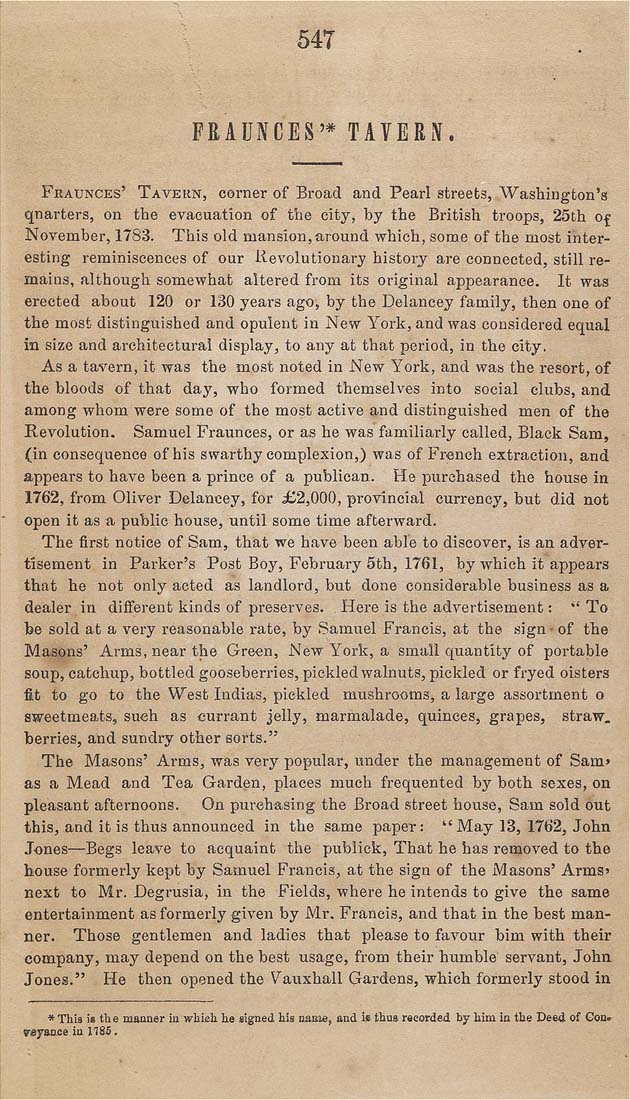647
FEAUNCES'* TA¥ERS.
Fraunces' Tavern, corner of Broad and Pearl streets, Washington's
quarters, on the evacuation of the city, by the British troops, 25th Of
November, 1783. This old mansion,around which, some of the most inter¬
esting reminiscences of our Kevolutionary history are connected, still re¬
mains, although somewhat altered from its original appearance. It was
erected about 120 or 130 years ago, by the Delancey family, then one of
the most distinguished and opulent in New York, and was considered equal
in size and architectural display, to any at that period, in the city.
As a tavern, it was the most noted in New York, and was the resort, of
the bloods of that day, who formed themselves into social clubs, and
among whom were some of the most active and distinguished men of the
Revolution. Samuel Fraunces, or as he was familiarly called, Black Sam,
(in consequence of his swarthy complexion,) was of French extraction, and
appears to have been a prince of a publican. He purchased the house in
1762, from Oliver Delancey, for £2,000, provincial currency, but did not
open it as ft public house, until some time afterward.
The first notice of Sam, that we have been able to discover, is an adver¬
tisement in Parker's Post Boy, February Sth, 1761, by which it appears
that he not only acted as landlord, but done considerable business as a
dealer.in different kinds of preserves. Here is the advertisement: *' To
he sold at a very reasonable rate, by Samuel Francis, at the sign ■ of the
Masons' Arms, near the Green, New York, a small quantity of portable
soup, catchup, bottled gooseberries, pickled walnuts, pickled or fryed oisters
fit to go to the West Indias, pickled mushrooms, a large assortment o
sweetmeats, such as eurrant jelly, marmalade, quinces, grapes, straw,
berries, and sundry other sorts."
The Masons' Arms, was very popular, under the management of Sam>
as a Mead and Tea Garden, places much frequented by both sexes, on
pleasant afternoons. On purchasing the Broad street house, Sam sold out
this, and it is thus announced in the same paper: " May 13, 1762, John
Jones™Begs leave to acquaint the publick, That he has removed to the
house formerly kept by Samuel Francis, at the sign of the Masons' ArmS'
next to Mr. Degrusia, in the Fields, where he intends to give the same
entertainment as formerly given by Mr. Francis, and that in the best man¬
ner. Those gentlemen and ladies that please to favour him with their
company, may depend on the best usage, from their humble servant, John
Jones." He then opened the Yauxhall Gardens, which formerly stood in
* This i« the manner in which he signed his uame, and ie thus recorded by him ia the Deed of Gon.
s^ejacee in 1786.
|








